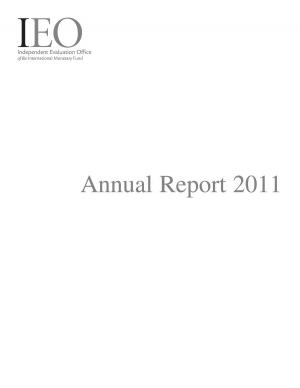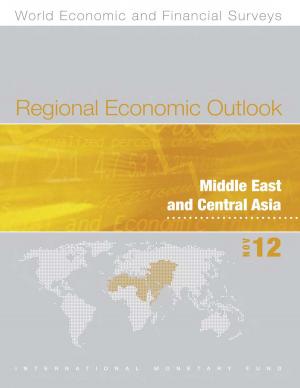| Author: | Maher Kababji | ISBN: | 9781476363059 |
| Publisher: | Maher Kababji | Publication: | August 26, 2012 |
| Imprint: | Smashwords Edition | Language: | English |
| Author: | Maher Kababji |
| ISBN: | 9781476363059 |
| Publisher: | Maher Kababji |
| Publication: | August 26, 2012 |
| Imprint: | Smashwords Edition |
| Language: | English |
in order that an organized body of knowledge might be classified as science, its hypothetical law must be based on facts. unlike any other social science, fallacies are the root of the technique of thinking in economics. by the lapse of time theses fallacies have been blindly accepted as if they represent a part of the natural life which people have to live with. the outcome is that present economic systems failed to realize prosperity.
viewing inflation as an unavoidable phenomenon is a major pitfall in economic thinking. inflation is the root of all evils. it is behind economic instability, financial crises, growing poverty, and concentration of wealth in few hands.
viewing present money as a valuable commodity helps expansion of the role of money beyond its scope of function and makes money loose its characteristics as a medium of exchange. Money is employed to restrict output growth through applying international and national controls over issuance of money. Output growth becomes dependent upon availability of money. money is used to play an inflationary role via excessive expansion of money supply to pay interests, taxes, speculative gains and illegal earnings. it looses its reliability as a measure of value and its honesty as a store of value. an alternative closed monetary system based on viewing money as just a valueless medium of exchange introduces a different approach to the theory of money.
present financial systems have ghastly impacts on societies. An alternative profit sharing financing system is presented to replace present banking system and financial markets.
a financial security system is introduced to sustain all members of society at or above a specified material standard of living and to ensure sufficiency of public revenue to finance public services with no need to borrow money or seek foreign investments. it is presented to replace present public finance system, welfare policies, and redistribution systems.
failure of man-made systems to realize prosperity makes it necessary to review the foundations on which present economic systems are based, and to look for an alternative system based on principles set by the Creator of people.
The analysis in this book proceeds in five chapters. each chapter introduces a different economic topic; productive activities, financial activities, redistribution system, financing system, and monetary system. while the first two chapters are concerned with the many activities undertaken in relation to wealth, the last three chapters are concerned with the economic system that organizes the ways by which available resources are utilized. each chapter explains how present economic principles are implemented with regard to the subject topic, highlights the pitfalls in economic thinking, and illustrates the related ideological viewpoints of Islam supported by the verses of the holly qur’an and the sayings of the Prophet (pbuh). each of the last three chapters introduces an alternative system based on sharia law.
the views expressed here are undoubtedly drastically different from the views of other researchers. However, financial distress is increasing and people will, sooner or later, realize the truth and make concert efforts to gradually embrace an alternative system that would reflect fair economy, and advance the needs of humanity as a whole.
in order that an organized body of knowledge might be classified as science, its hypothetical law must be based on facts. unlike any other social science, fallacies are the root of the technique of thinking in economics. by the lapse of time theses fallacies have been blindly accepted as if they represent a part of the natural life which people have to live with. the outcome is that present economic systems failed to realize prosperity.
viewing inflation as an unavoidable phenomenon is a major pitfall in economic thinking. inflation is the root of all evils. it is behind economic instability, financial crises, growing poverty, and concentration of wealth in few hands.
viewing present money as a valuable commodity helps expansion of the role of money beyond its scope of function and makes money loose its characteristics as a medium of exchange. Money is employed to restrict output growth through applying international and national controls over issuance of money. Output growth becomes dependent upon availability of money. money is used to play an inflationary role via excessive expansion of money supply to pay interests, taxes, speculative gains and illegal earnings. it looses its reliability as a measure of value and its honesty as a store of value. an alternative closed monetary system based on viewing money as just a valueless medium of exchange introduces a different approach to the theory of money.
present financial systems have ghastly impacts on societies. An alternative profit sharing financing system is presented to replace present banking system and financial markets.
a financial security system is introduced to sustain all members of society at or above a specified material standard of living and to ensure sufficiency of public revenue to finance public services with no need to borrow money or seek foreign investments. it is presented to replace present public finance system, welfare policies, and redistribution systems.
failure of man-made systems to realize prosperity makes it necessary to review the foundations on which present economic systems are based, and to look for an alternative system based on principles set by the Creator of people.
The analysis in this book proceeds in five chapters. each chapter introduces a different economic topic; productive activities, financial activities, redistribution system, financing system, and monetary system. while the first two chapters are concerned with the many activities undertaken in relation to wealth, the last three chapters are concerned with the economic system that organizes the ways by which available resources are utilized. each chapter explains how present economic principles are implemented with regard to the subject topic, highlights the pitfalls in economic thinking, and illustrates the related ideological viewpoints of Islam supported by the verses of the holly qur’an and the sayings of the Prophet (pbuh). each of the last three chapters introduces an alternative system based on sharia law.
the views expressed here are undoubtedly drastically different from the views of other researchers. However, financial distress is increasing and people will, sooner or later, realize the truth and make concert efforts to gradually embrace an alternative system that would reflect fair economy, and advance the needs of humanity as a whole.















